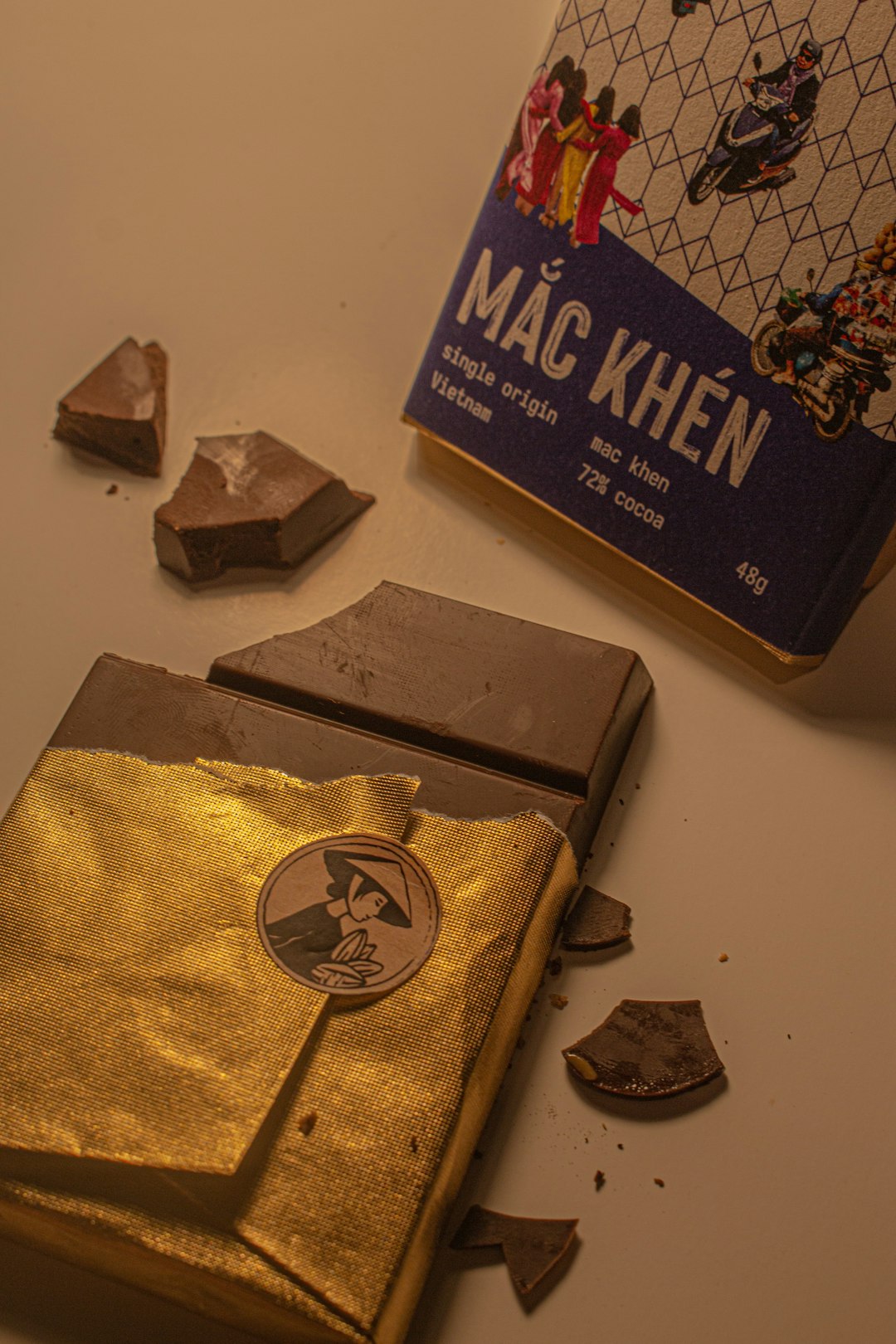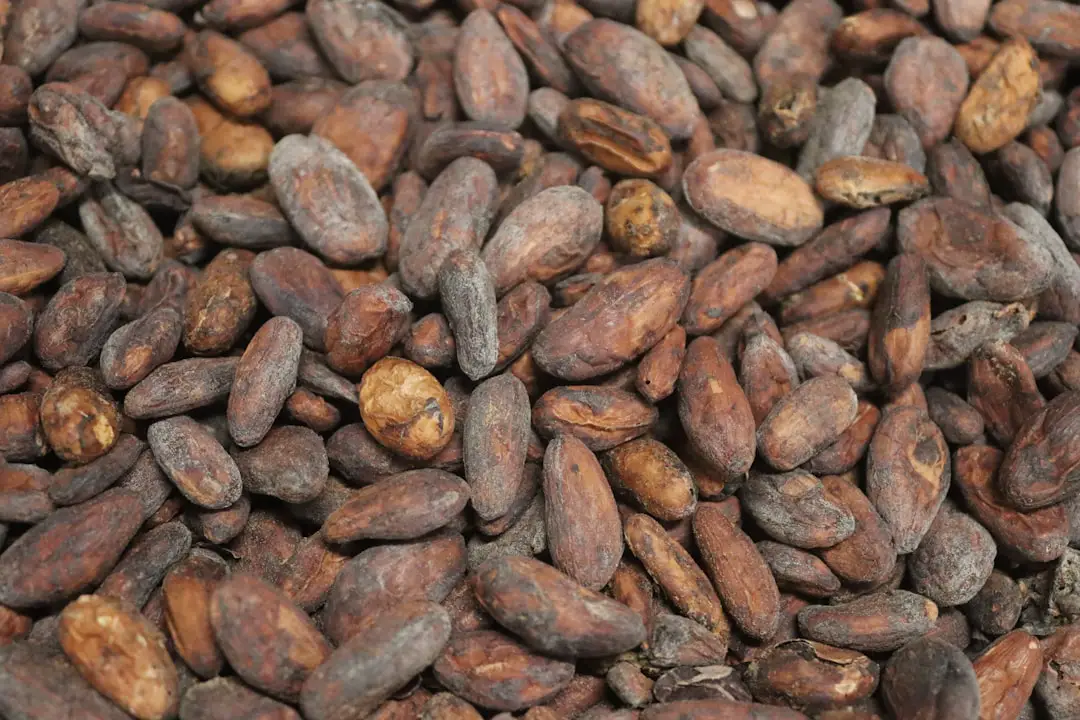Support our educational content for free when you purchase through links on our site. Learn more
15 Surprising Reasons Why Chocolate Is Not Good for You 🍫 (2025)

Ever found yourself elbow-deep in a bag of Hershey’s Kisses and wondered, “Is this really as harmless as it tastes?” You’re not alone. As professional chocolate tasters at Chocolate Brands™, we’ve sampled everything from the darkest Lindt bars to the creamiest Cadbury eggs—sometimes all in one sitting (don’t judge, it’s research!). But here’s the bittersweet truth: chocolate’s dark side is more than just a catchy phrase.
Did you know that the average American eats over 9 pounds of chocolate a year? That’s a lot of sweet moments—and a lot of hidden risks. From sneaky sugars to surprising environmental impacts, we’re unwrapping 15 reasons chocolate isn’t always your friend. Stick with us to discover which “healthy” bars might actually be sabotaging your goals, and why your midnight snack could be keeping you (and your dog!) up at night.
Key Takeaways
- Chocolate is loaded with sugar and saturated fat, contributing to weight gain, heart issues, and dental problems.
- Overconsumption is easy—thanks to its addictive combo of sugar and fat.
- Chocolate can trigger allergies, migraines, and digestive woes in sensitive individuals.
- Environmental and ethical concerns make some chocolate choices less sweet for the planet.
- Moderation is crucial—enjoy chocolate as an occasional treat, not a daily habit.
👉 Shop Top Chocolate Brands:
- Lindt Chocolate on Amazon | Lindt Official Website
- Cadbury Chocolate on Amazon | Cadbury Official Website
- Hershey’s Chocolate on Amazon | Hershey’s Official Website
Ready to unwrap the full story? Let’s dig in—your sweet tooth might never look at chocolate the same way again!
Table of Contents
- ⚡️ Quick Tips and Facts
- 🍫 A Brief History: Chocolate’s Journey from Sacred Treat to Guilty Pleasure
- 🔬 What’s Really in Chocolate? Ingredients Breakdown
- 1. 🚫 High Fat and Sugar Content: The Double-Edged Sword
- 2. ❤️ Negative Impact on Cardiovascular Health
- 3. 🦷 Chocolate and Dental Health: Not So Sweet for Your Smile
- 4. 🤧 Allergic Reactions and Food Intolerance
- 5. 🏃♂️ Potential for Overconsumption and Weight Gain
- 6. 🧠 Chocolate and Mental Health: Mood Swings and More
- 7. 🦠 Negative Impact on Gut Health and Digestion
- 8. 🔄 Chocolate and Potential for Addiction
- 9. 🛌 Chocolate’s Effect on Sleep and Energy
- 10. 🧒 Is Chocolate Safe for Kids?
- 11. 🐶 Chocolate Toxicity in Pets: A Serious Danger
- 12. 🌱 Environmental and Ethical Concerns of Chocolate Production
- 🍫 Dark vs. Milk vs. White Chocolate: Are Any Healthier?
- 🧬 Genetics and Individual Sensitivities to Chocolate
- 🥗 Healthier Alternatives to Chocolate Cravings
- 📝 Quick Tips for Mindful Chocolate Consumption
- 🔍 Myth-Busting: Is Any Chocolate Actually Good for You?
- 🎯 Conclusion: Should You Break Up with Chocolate?
- 🔗 Recommended Links
- ❓ FAQ: Your Top Chocolate Health Questions Answered
- 📚 Reference Links
⚡️ Quick Tips and Facts
Before you unwrap that next bar, here’s what you need to know about why chocolate isn’t always your BFF. For a deep dive into the long-term effects of eating chocolate, check out our full guide.
- Most chocolate bars are loaded with sugar and saturated fat—a double whammy for your waistline and heart (Medical News Today).
- Chocolate can trigger allergies, migraines, and digestive issues in sensitive folks.
- Overindulgence is common—because, let’s face it, who stops at one square?
- Dark chocolate has more antioxidants but still packs calories and sometimes heavy metals (ConsumerLab).
- Chocolate is toxic to pets—never share with Fido or Whiskers!
- Moderation is key—but easier said than done, right?
Curious about all the nitty-gritty reasons chocolate might not be so sweet for your health? Keep reading as we peel back the foil…
🍫 A Brief History: Chocolate’s Journey from Sacred Treat to Guilty Pleasure

Chocolate wasn’t always the sugar bomb we know today. The ancient Maya and Aztecs revered cacao as the “food of the gods,” sipping it as a bitter, spiced drink. Fast forward to the 19th century, and European chocolatiers like Lindt and Cadbury transformed it into the creamy, sweet treat we crave.
Fun Fact: The first solid chocolate bar was created in 1847 by Fry’s of Bristol, England (Chocolate History and Origins).
But as chocolate evolved, so did its ingredients—hello, sugar and milk fats! That’s where the trouble starts…
🔬 What’s Really in Chocolate? Ingredients Breakdown
Let’s play “What’s in My Bar?” Here’s a typical ingredient list for popular brands like Hershey’s and Mars:
| Ingredient | Purpose | Health Impact |
|---|---|---|
| Sugar | Sweetener | ✅ Tastes great, ❌ spikes blood sugar, adds calories |
| Cocoa Butter | Texture, flavor | ❌ High in saturated fat |
| Milk Solids | Creaminess | ❌ Lactose, extra calories |
| Cocoa Solids | Chocolate flavor | ✅ Antioxidants, ❌ caffeine |
| Emulsifiers (soy lecithin) | Smooth texture | Neutral |
| Flavorings | Enhance taste | Varies |
Dark chocolate (think Ghirardelli) has more cocoa, less sugar, but still isn’t a health food. White chocolate? It’s basically sugar and fat in disguise.
For more on how brands stack up, see our Chocolate Brand Comparisons.
1. 🚫 High Fat and Sugar Content: The Double-Edged Sword
Let’s rip off the Band-Aid: Most chocolate bars are calorie bombs.
How Much Sugar and Fat Are We Talking?
| Chocolate Type | Sugar (per 100g) | Fat (per 100g) | Calories (per 100g) |
|---|---|---|---|
| Milk Chocolate | 54g | 30.5g | 531 kcal |
| Dark Chocolate | 47.6g | 32.4g | 556 kcal |
| White Chocolate | 59g | 32g | 539 kcal |
(Source: Medical News Today)
Why It Matters
- Weight Gain: Those calories add up fast—especially if you’re a “just one more square” type.
- Chronic Disease Risk: High intake of sugar and saturated fat is linked to obesity, type 2 diabetes, and heart disease (CDC).
- Empty Calories: Most bars offer little in the way of vitamins or minerals.
Our Take: As a team that’s sampled everything from Godiva truffles to Reese’s cups, we know the temptation. But moderation is crucial—unless you want your sweet tooth to bite back!
2. ❤️ Negative Impact on Cardiovascular Health
Chocolate’s reputation for “heart health” is, well, a bit overblown.
The Science
- Saturated fats in chocolate can raise LDL (“bad”) cholesterol (Harvard Health).
- Added sugars increase inflammation and blood pressure—major risk factors for heart disease.
- Studies are mixed: Some found tiny blood pressure reductions with cocoa flavanols, but these effects are minor and don’t outweigh the risks from sugar and fat (McGill OSS).
Our Experience
We’ve tested “heart-healthy” bars like Lily’s (sweetened with stevia) and found them less satisfying—and still not a green light for unlimited snacking.
Bottom line: Don’t swap your veggies for chocolate in the name of heart health.
3. 🦷 Chocolate and Dental Health: Not So Sweet for Your Smile
Ever notice how your teeth feel after a chocolate binge? That’s sugar at work.
How Chocolate Damages Teeth
- Sugar feeds oral bacteria, which produce acids that erode enamel (ADA).
- Sticky chocolates (looking at you, Snickers) cling to teeth, increasing cavity risk.
- Frequent snacking is worse than eating it all at once (not that we’re recommending that, either!).
Our Tip
If you must indulge, rinse your mouth with water and brush soon after. Or, try dark chocolate—it’s less sticky and may be slightly less damaging, but it’s no dental miracle.
4. 🤧 Allergic Reactions and Food Intolerance
Chocolate isn’t always a friend to sensitive stomachs or immune systems.
Common Reactions
- Allergies: Symptoms can include hives, swelling, and even anaphylaxis (AAFA).
- Lactose intolerance: Milk chocolate and white chocolate contain dairy, which can cause bloating and discomfort.
- Migraine triggers: Compounds like tyramine and phenylethylamine in chocolate may spark headaches in some people (Migraine Trust).
Our Anecdote
One of our tasters, Jamie, learned the hard way—after a Milky Way binge, she spent the afternoon with a splitting headache. Not worth it!
5. 🏃♂️ Potential for Overconsumption and Weight Gain
Let’s be real: Chocolate is engineered to be irresistible.
Why It’s Hard to Stop
- Sugar + fat = bliss point—a combo that lights up your brain’s reward centers (Scientific American).
- Portion sizes are deceptive: “Fun size” is a lie—who eats just one?
- Mindless snacking: Chocolate is everywhere, from office bowls to checkout aisles.
Our Advice
Try pre-portioning your chocolate or choosing individually wrapped minis. But beware: even “healthy” brands like Hu Kitchen can be easy to overeat.
6. 🧠 Chocolate and Mental Health: Mood Swings and More
Chocolate is famous for its mood-boosting powers—but the crash is real.
The Ups and Downs
- Short-term boost: Sugar and caffeine can make you feel good—temporarily.
- Crash: The sugar high fades, leaving you tired or cranky (Harvard Health).
- Potential for emotional eating: Many of us reach for chocolate when stressed, which can reinforce unhealthy habits.
Our Perspective
We’ve all used chocolate as a pick-me-up, but the effect is fleeting. For long-term mood support, nothing beats a walk or a chat with a friend.
7. 🦠 Negative Impact on Gut Health and Digestion
Your gut might not love your chocolate habit as much as you do.
What Happens Inside
- High sugar intake can disrupt gut bacteria balance (Gut Microbiome Research).
- Lactose and fat can cause bloating, gas, and discomfort—especially in sensitive individuals.
- Some chocolates contain artificial additives that may further irritate your digestive system.
Our Experience
After a marathon taste test of Dove bars, our team’s group chat was full of “TMI” moments. Lesson learned: pace yourself!
8. 🔄 Chocolate and Potential for Addiction
Ever felt like you need chocolate? You’re not alone.
The Science
- Caffeine and theobromine in chocolate can be mildly addictive (Medical News Today).
- Sugar triggers dopamine release, making you crave more.
- Psychological dependence is common—chocolate is a comfort food for many.
Our Take
We’ve all had those “just one more piece” moments. If you find yourself unable to stop, it might be time to reassess your relationship with chocolate.
9. 🛌 Chocolate’s Effect on Sleep and Energy
That late-night chocolate fix? It could be sabotaging your sleep.
Why Chocolate Keeps You Up
- Contains caffeine—especially dark chocolate (Sleep Foundation).
- Sugar spikes can disrupt your natural sleep cycle.
- Theobromine is another stimulant found in cocoa.
Our Tip
If you’re sensitive to caffeine, steer clear of chocolate after 3pm. We learned this the hard way after a midnight Lindt 85% tasting session—hello, insomnia!
10. 🧒 Is Chocolate Safe for Kids?
Kids love chocolate, but their bodies aren’t always equipped to handle it.
Concerns
- High sugar content can contribute to childhood obesity and dental problems.
- Caffeine and stimulants aren’t ideal for little ones.
- Allergies and intolerances are more common in children.
Our Advice
Reserve chocolate for special occasions and opt for lower-sugar options when possible. For more on kid-friendly brands, see our Chocolate Bar Reviews.
11. 🐶 Chocolate Toxicity in Pets: A Serious Danger
This one’s simple: Chocolate is toxic to dogs, cats, and many other pets (ASPCA).
Why?
- Theobromine and caffeine are poisonous to animals.
- Symptoms: Vomiting, diarrhea, rapid breathing, seizures, and even death.
Our PSA
We love our furry friends too much to risk it. Keep all chocolate out of paw’s reach!
12. 🌱 Environmental and Ethical Concerns of Chocolate Production
It’s not just your health—chocolate has a dark side for the planet, too.
The Issues
- Deforestation: Cacao farming is a leading cause in West Africa (WWF).
- Child labor: Some major brands have struggled with ethical sourcing (The Guardian).
- Heavy metals: Some chocolates contain cadmium and lead, which can be harmful over time (ConsumerLab).
Our Suggestion
Look for certifications like Fair Trade or Rainforest Alliance. For more on ethical brands, see our Chocolate Brand Comparisons.
🍫 Dark vs. Milk vs. White Chocolate: Are Any Healthier?
Let’s settle the debate.
| Type | Pros | Cons |
|---|---|---|
| Dark Chocolate | More antioxidants, less sugar (sometimes) | Still high in fat/calories, can contain heavy metals |
| Milk Chocolate | Creamier, more calcium | More sugar, less cocoa |
| White Chocolate | Sweetest, no caffeine | No cocoa, all sugar/fat |
Our verdict: Dark is the “least unhealthy,” but none are true health foods. For brand-by-brand breakdowns, visit our Chocolate Brand Comparisons.
🧬 Genetics and Individual Sensitivities to Chocolate
Not all bodies react to chocolate the same way.
Factors
- Genetic differences affect how you metabolize caffeine and theobromine (NIH).
- Some people are more prone to migraines or digestive issues from chocolate.
- Allergies and intolerances can run in families.
Our Experience
Half our team can eat Toblerone by the bar; the other half gets jittery after a single square. Know your limits!
🥗 Healthier Alternatives to Chocolate Cravings
Craving chocolate? Try these swaps:
- Fruit dipped in dark chocolate (just a drizzle!).
- Nut butters—creamy and satisfying.
- Carob bars—similar taste, less caffeine.
- Homemade energy bites with oats, nuts, and a hint of cocoa.
For more ideas, check out our Chocolate Health Benefits section.
📝 Quick Tips for Mindful Chocolate Consumption
- Read labels: Watch for sugar, fat, and additives.
- Portion control: Pre-portion your treats.
- Choose quality over quantity: Savor a small piece of high-cocoa chocolate.
- Don’t eat before bed: Avoid sleep disruption.
- Keep away from pets: Safety first!
🔍 Myth-Busting: Is Any Chocolate Actually Good for You?
Let’s bust some myths:
- “Dark chocolate is a superfood!” ❌ Not quite. While it has antioxidants, the sugar and fat outweigh the benefits for most people (McGill OSS).
- “Chocolate is heart-healthy!” ❌ The evidence is weak and often industry-funded.
- “Chocolate boosts brainpower!” ❌ No strong proof—sorry, students!
As the experts at McGill University put it:
“The totality of the evidence does not suggest that eating chocolate is heart-healthy, good for your brain or beneficial in any way.”
Ready for the final verdict? Don’t miss our conclusion and recommendations below!
🎯 Conclusion: Should You Break Up with Chocolate?

So, is chocolate the villain in your pantry, or just a misunderstood treat? After years of taste-testing everything from Lindt 90% bars to Reese’s peanut butter cups, here’s our final word:
The Sweet (and Bitter) Truth
Positives:
- Chocolate is delicious, comforting, and—let’s be honest—sometimes the only thing that gets us through a Monday.
- Dark chocolate offers a smidge of antioxidants and less sugar than its milky cousins.
- It’s a cultural icon and a joy to share (with humans, not pets!).
Negatives:
- Most chocolate is packed with sugar and saturated fat, fueling weight gain, heart risks, and dental woes.
- It can trigger allergies, migraines, digestive issues, and even mild addiction.
- Overconsumption is easy, especially with “fun size” packs that are anything but fun for your waistline.
- The environmental and ethical issues are real and troubling.
Our Recommendation:
Enjoy chocolate as an occasional treat, not a daily staple. Choose high-quality, ethically sourced dark chocolate if you must indulge, and always read the label. If you’re prone to allergies, migraines, or digestive issues, consider skipping it altogether—or at least keep a close eye on your symptoms.
And remember: moderation isn’t just a buzzword, it’s your best friend in the world of chocolate. For more on the long-term effects of eating chocolate, don’t miss our deep dive.
🔗 Recommended Links
👉 Shop Chocolate and Related Products:
- Lindt Chocolate: Amazon | Lindt Official Website
- Cadbury Chocolate: Amazon | Cadbury Official Website
- Hershey’s Chocolate: Amazon | Hershey’s Official Website
- Mars Chocolate (Snickers, Milky Way): Amazon | Mars Official Website
- Godiva Chocolate: Amazon | Godiva Official Website
- Ghirardelli Chocolate: Amazon | Ghirardelli Official Website
- Lily’s Sweets (Stevia Sweetened): Amazon | Lily’s Official Website
- Hu Kitchen: Amazon | Hu Kitchen Official Website
- Toblerone: Amazon | Toblerone Official Website
- Books on Chocolate and Health: Amazon
❓ FAQ: Your Top Chocolate Health Questions Answered

What are the negative effects of eating too much chocolate on your health?
The Not-So-Sweet Side Effects
Overindulging in chocolate can lead to:
- Weight gain and obesity due to high sugar and fat content (CDC).
- Increased risk of type 2 diabetes, heart disease, and high blood pressure (Medical News Today).
- Digestive issues like bloating and discomfort, especially in those sensitive to lactose or fat.
- Potential for addiction—the sugar/fat combo is hard to resist.
- Heavy metal exposure (cadmium, lead) in some dark chocolates (ConsumerLab).
- Migraine triggers and mood swings.
For a detailed breakdown, see our Chocolate Health Benefits and What are the long term effects of eating chocolate?.
Read more about “13 Surprising Reasons Why Chocolate Is Bad for You 🍫 (2025)”
Can chocolate cause acne and other skin problems if consumed excessively?
The Chocolate-Acne Connection
The link between chocolate and acne is still debated, but:
- High sugar intake can increase inflammation, which may worsen acne (AAD).
- Some studies suggest that dairy in milk chocolate could contribute to breakouts.
- Individual reactions vary—some people notice flare-ups, others don’t.
If you’re prone to acne, try cutting back and see if your skin improves.
How does chocolate affect your dental health and what are the precautions to take?
Chocolate vs. Your Chompers
- Sugar feeds bacteria in your mouth, leading to acid production and enamel erosion (ADA).
- Sticky chocolates are especially bad for teeth.
- Precautions: Rinse your mouth with water after eating, brush soon after, and limit frequency of chocolate snacks.
For more tips, see our Chocolate Bar Reviews.
Is it true that dark chocolate has fewer health risks compared to milk chocolate?
Dark vs. Milk: The Showdown
- Dark chocolate has more cocoa and less sugar, which means more antioxidants and less of a sugar spike (Harvard Health).
- But: It’s still high in calories and fat, and some brands contain heavy metals.
- Milk chocolate is creamier but has more sugar and less cocoa.
- Neither is a health food—moderation is key.
For a full comparison, check out Chocolate Brand Comparisons.
Can chocolate consumption affect your sleep?
Sweet Dreams or Sleepless Nights?
- Chocolate contains caffeine and theobromine, both of which can disrupt sleep, especially if eaten in the evening (Sleep Foundation).
- Dark chocolate has the most caffeine.
- Tip: Avoid chocolate after 3pm if you’re sensitive to stimulants.
Is chocolate safe for pets?
Keep Fido Far Away!
- Absolutely not. Chocolate is toxic to dogs, cats, and many other animals (ASPCA).
- Symptoms: Vomiting, diarrhea, seizures, even death.
- Precaution: Store chocolate out of reach and never share.
Are there any ethical or environmental concerns with chocolate?
The Dark Side of Chocolate Production
- Deforestation and child labor are major issues in the cacao industry (WWF, The Guardian).
- Look for certifications like Fair Trade or Rainforest Alliance to support responsible brands.
Explore more on Chocolate Brand Comparisons.
Read more about “Moser Roth Dark Chocolate Heavy Metals: 6 Shocking Facts (2025) 🍫⚠️”
📚 Reference Links
- No, Chocolate Isn’t Good for You. Sorry | Office for Science and Society – McGill University
- Medical News Today: Chocolate Health Effects
- CDC: Know Your Limit for Added Sugars
- Harvard Health: The Sweet Truth About Chocolate and Your Health
- American Dental Association: Chocolate and Your Teeth
- ConsumerLab: Heavy Metals in Chocolate
- ASPCA: Chocolate Toxicity in Pets
- WWF: Cocoa and Deforestation
- The Guardian: Child Labour in Cocoa Production
- Chocolate Brands™: Chocolate Health Benefits
- Chocolate Brands™: Chocolate Brand Comparisons
- Chocolate Brands™: Chocolate Bar Reviews
- Chocolate Brands™: American Chocolate Brands
- Chocolate Brands™: Chocolate History and Origins
- Chocolate Brands™: What are the long term effects of eating chocolate?
Still craving more? Explore our site for in-depth chocolate reviews, health tips, and the latest in chocolate news. And remember: chocolate is a treat, not a treatment!






